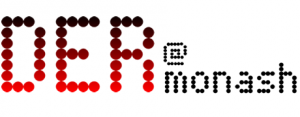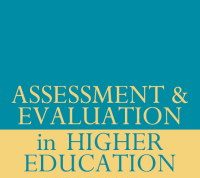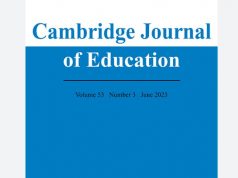February 2019 saw DER host a day-long symposium on ‘digital education futures’. The day ended with a 60 minute ‘feed forward’ session, where participants talked through some of the burning issues, questions and challenges that arose from the day. One of the three chosen themes was DATA & DATAFICATION. Here is a run-down of our thoughts …
>> DATA IS NOT STATIC … DATA HAS A ‘SOCIAL LIFE’: These are not discussions about data points, but a whole process of the social construction of data, and its continual circulation and reconfiguration as it flows around the world. Crucially, we need to think carefully about the different actors involved in the production, processing and circulation of educational data – especially their various interests and agendas, and how these shape what is done with the data that is presented to students, teachers, parents and schools
>> DATA IS COOKED … NOT RAW: Social scientists are quick to remind us that data is never ‘raw’. Instead, data is socially constructed – with humans choosing when and where data is produced, what ‘counts’ as data (and what does not), and deciding on what calculations and combinations are to be used. If we extend this analogy, then perhaps it helps to see data as a cake that results from people deciding on (and following) a recipe. In this sense, we need to think more carefully about how educational data are ‘cooked’. Are there moments when the cake can be unbaked, or where we can deviate from the recipe to create a different flavour?
>> ABSTRACT MEASUREMENTS HAVE REAL-LIFE CONSEQUENCES: The recent push for digital data in schools taps into wider imperatives for the measurement, standardisation, auditing and accountability of what schools/teachers/students do. It is important to make the connection between the current vogue for digital data and analytics and the past 20 years of neo-liberal new managerialism. As such, digital data is entwined with the rise of performativity in schools, and the trend for comparison, judgements and apportioning of blame. In this sense, the generation of seemingly inconsequential data can have real-life consequences – whether a teacher passes probation, whether a student is entered for an examination, how funding is awarded.
>> HOW CAN TEACHERS ENGAGE CRITICALLY WITH DATA? We need to think further to develop ways in which teachers can be supported to engage with the data that they are presented with, and develop ways in which teachers can judge the quality of data. For example, this might involve developing a critical awareness of the representativeness of what data purport to be an indicator of, and/or how data might reduce quite complex issues. We need to work out ways that teachers can become more involved in the narratives around the data that they produce, and that is produced about them.
>> HOW CAN NON-EXPERTS BEGIN TO UNDERSTAND THE ‘BACK-END’ OF DATA? Critical understandings of educational data require a good understanding both of education AND of data. Is this possible if one is not a fully-fledged data scientist and/or programmer. What level of skills do non-experts require, and what approach is most appropriate (e.g. ‘data fluency’, ‘data wrangling’)? Alternatively, how might educators and educationalists fruitfully engage in inter-disciplinary collaborations with data scientists?
>> DIGITAL DATA BRINGS CAPITALISM INTO THE CLASSROOM: In an abstract sense, datafication involves the commodification of educational practices and processes – assigning values to every aspect of a classroom. Datafication also brings schools and classrooms into the global data economy. We should not under-estimate the profitability of education data (as evinced in the recent acquisition of TurnItIn for $1.75billion). Also we should not underestimate the shifts that data-driven technologies are bringing to the governance of education. To what extent are these technologies heralding a move from state governance to corporate governance? How can we make sense of the soft power that companies like Google now have over schools and schooling? How might this power be challenged?
>> THE BIG QUESTION = ‘DAY’ OR ‘DAR’?: This is definitely an area with language controversies. We are all now fairly comfortable with slipping into referring to data as a singular thing. However, one point that will never be resolved in a mixed-nationality room is whether to pronounce ‘DAY-TER’ (refined European pronunciation) or ‘DAR-TAR’ (less-refined North American pronunciation).
[Issues arising from discussions facilitated by Luci Pangrazio. Contributors included: Bec Carter, Chris Swanwick, Rosie Welch, George Variyan, Adam Wood, Andrea Barrios, Cameron Stow, Jamie Manolev, Jane Tsakissiris, Karley Beckman, Matt Fyfield, Tiffani Apps, Robbie Fordyce, Janine Arantes]







